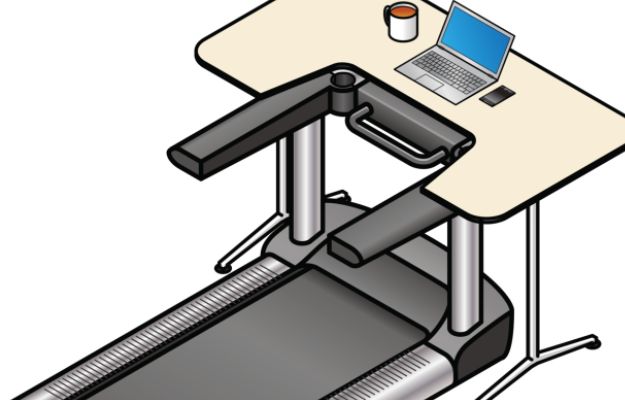According to exercise science professor James LeCheminant and neuroscientist Michael Larson from Utah-based Brigham Young University, the walkers showed slight decrease in processing speed, attention and typing words per minute but the overall drop was not enough to warrant major concern.
"Though statistically significant, we are not talking about major differences between the treadmill-walking and sitting conditions. Rather, these are very modest differences," LeCheminant explained.
For the study, the duo compared the cognitive performance of healthy adults sitting at a desk to those using treadmill desks while carrying out the same tasks. They assessed 75 healthy adults, half using treadmill desks and half using regular desks for a 45-minute period. The 37 people on treadmill desks walked at a speed of 2.4 km per hour. The walkers saw a nine percent drop in cognitive processing speed, attention and working memory and a 13-word-per-minute drop in typing.
Researchers were surprised to find treadmill walkers retained their learning just as well as sitters even if it took them longer to process it in the first place. The findings show that treadmill desks may be most appropriate to use during tasks that are less cognitive-demanding (checking email) or do not require a great deal of fine-motor skills (non-typing tasks).
"Workers can step off the treadmill desk when they have a task that requires higher concentration such as intense reading and editing," the authors noted.
The duo strongly support the use of treadmill desks, sit-stand desks and any other efforts to safely improve physical activity in the work place. "For health alone, it is great but if the cognitive decline is small, then you bet it is worth it," Larson noted.
The health benefits likely outweigh any slight performance dips you may get from implementing the treadmill desk, he added.










